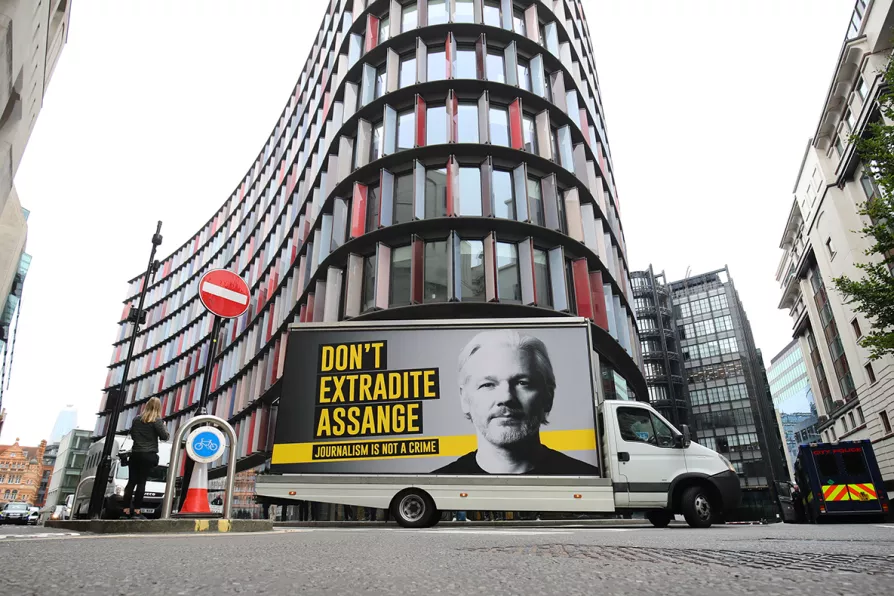
 A mobile advertising board with a "Don't Extradite Assange" message outside the Old Bailey, London
A mobile advertising board with a "Don't Extradite Assange" message outside the Old Bailey, London
REVELATIONS published by Wikileaks helped to end a secret US assassination programme and freed unlawfully detained prisoners from Guantanamo Bay, the Julian Assange extradition hearing was told today.
Giving evidence during the second day of the Wikileaks founder’s hearing at the Old Bailey, human rights lawyer Clive Stafford Smith also said that the site’s content had helped to stop drone strikes in Pakistan and provided evidence currently being investigated by the International Criminal Court.
The lawyer, who has represented numerous Guantanamo Bay prisoners, said that the leaked documents had enabled him to win legal actions on behalf of “a number of innocent people in detention” at the US-run detention camp.
![[Pic: Andrew Wiard]]( https://msd11.gn.apc.org/sites/default/files/styles/low_resolution/public/2026-01/19860330_a_wiard_0001JPG.jpg.webp?itok=F659dJUa)
As advertising drains away, newsrooms shrink and local papers disappear, MIKE WAYNE argues that the market model for news is broken – and that public-interest alternatives, rooted in democratic accountability, are more necessary than ever

On January 2 2014, PJ Harvey used her turn as guest editor of the Today programme to expose the realities of war, arms dealing and media complicity. The fury that followed showed how rare – and how threatening – such honesty is within Britain’s most Establishment broadcaster, says IAN SINCLAIR

Groups are urging the US government to secure the 16-year old’s release as his mental and physical health decline dramatically after nine months inside Ofer prison, writes LINDA PENTZ GUNTER











